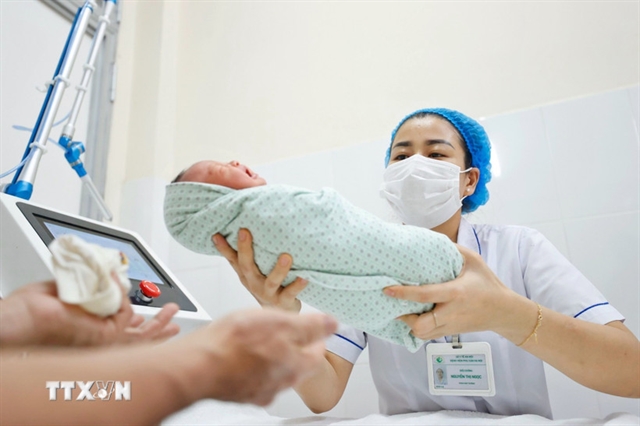 Society
Society


|
| New Government regulations on assisted reproduction and humanitarian surrogacy take effect from October 1. — VNA/VNS Photo |
HÀ NỘI — The Government has issued new regulations governing assisted reproductive technology and surrogacy for humanitarian purposes, aiming to ensure ethical standards, transparency and legal protection for all parties involved.
The decree will take effect from October 1.
The regulations provide a comprehensive legal framework for procedures such as in vitro fertilisation (IVF), and the donation, storage and use of sperm, ova (eggs) and embryos. They also establish clear conditions under which surrogacy may be carried out, strictly for humanitarian purposes.
Under the new rules, sperm, ova and embryo donations must be made only at medical facilities licensed to store these materials. Each donation may be used for only one woman or one couple, and donations must be anonymous to protect the identities of both donors and recipients.
Assisted reproductive technology will be permitted for infertile couples, women with a certified medical condition or single women wishing to have children. The privacy and personal dignity of couples seeking surrogacy, surrogate mothers and children born through this process must be safeguarded. Their personal, family and medical information will be legally protected.
Medical establishments seeking to perform surrogacy must meet strict eligibility criteria. They must have at least two years of experience in IVF, with a minimum of 500 IVF cycles conducted annually in the two years prior to application.
Facilities must also have qualified staff to provide medical, psychological and legal counselling. While medical advisers must be full-time staff, psychological and legal consultants may be collaborators, provided their qualifications meet legal requirements.
Approval to perform surrogacy will be granted by the relevant minister, depending on the facility’s governing authority. Applications must follow existing licensing procedures and include proof of eligibility.
Infertile couples must apply to a licensed facility, submitting a written request, evidence of a close familial tie with the surrogate, proof she has previously given birth and a surrogacy agreement in accordance with the law.
Once an application is received, the medical facility is responsible for assessing the health of both the surrogate and the commissioning couple. It must confirm the intended mother is unable to conceive, even with assisted reproductive methods and verify that the surrogate is physically capable of carrying the pregnancy. Counselling on medical risks, psychological impacts and legal rights and responsibilities must be provided before the procedure begins.
If either the surrogate or the couple does not meet the health requirements, the facility must respond in writing within 10 working days, clearly stating the reasons for the rejection. — VNS




